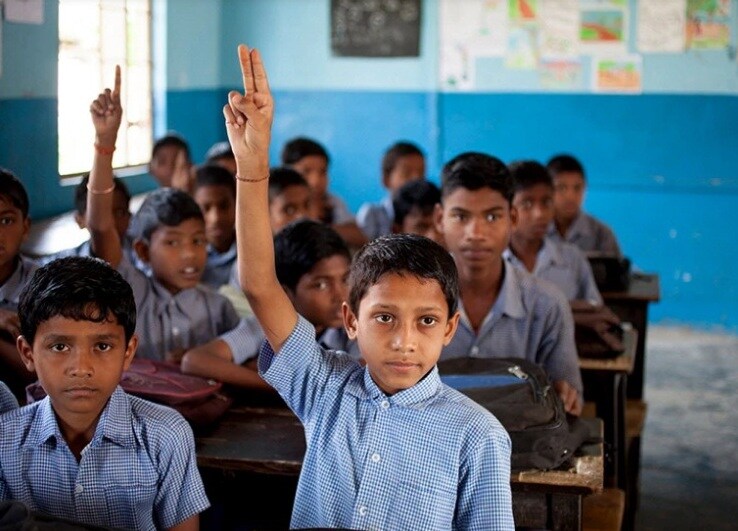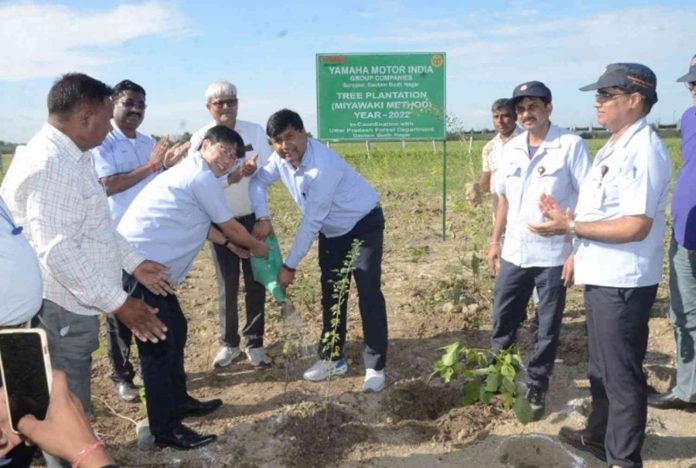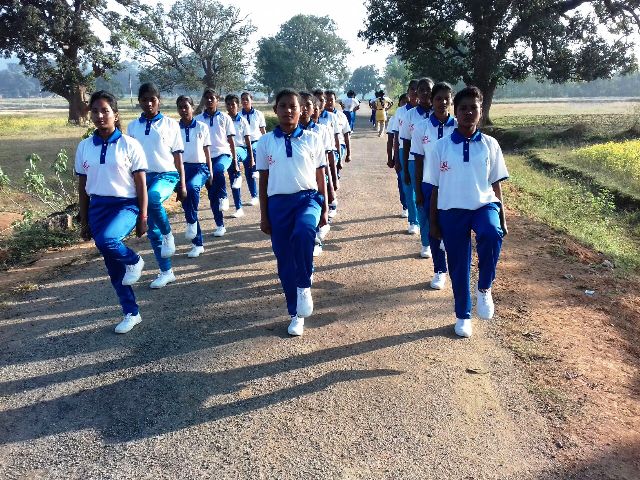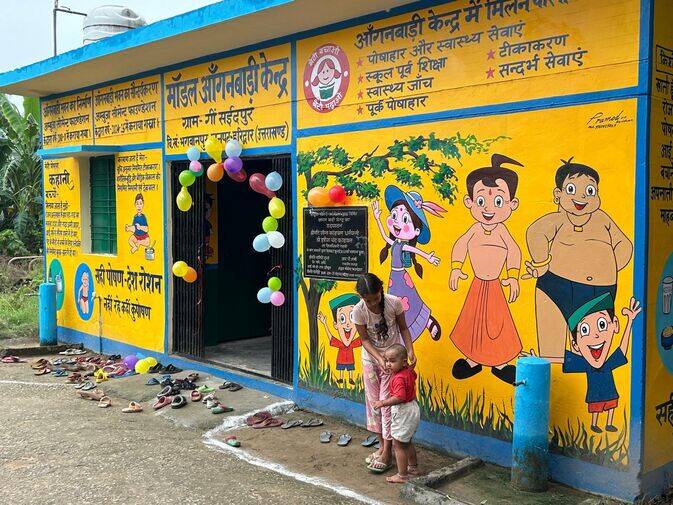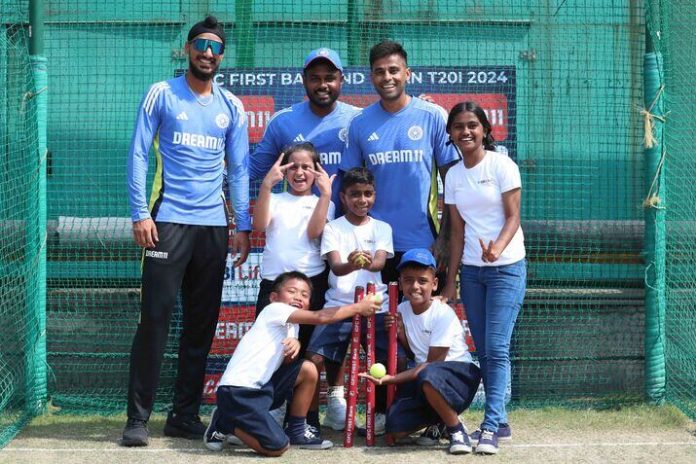Brands That Help Women Stay Outdoors
The cities of India might be designed based on the idea of modernisation, but not on the idea of gender equity. The infrastructure of the city does not provide for enough clean female toilets, subsidised women’s transport and other women-only mobility options. This restricts a female from accessing the city, in a similar manner to men.
Improving Access: Top Companies
Access to the city is unequal for men and women. While women have to fight a long battle to come out of their houses into public spaces, their existence outdoors is also not very secure. Problems of safety, sanitation and character judgement in public spaces are hard to contend for a woman.
These five brands help women to have a better experience in the outdoors. These companies, other than making a profit, also have a unique idea that revolutionise women mobility in the public space.
1. PeeSafe Urination Cone:
Because of the problem of poor sanitation and the unavailability of toilets in public spaces, women restrict their movement in the city. While on periods, the problem of not finding a suitable toilet can become more serious. Inaccessibility of toilets in the city also affects the participation of women in field jobs like journalism, taxi driving, armed forces, etc. PeeSafe, a company conceptualised by Srujana Bagaria, came up with products that help women pee safely in public.
In 2013, the company innovated toilet seat sanitiser spray which was immediately accepted by a lot of women as a quick solution to avoid UTI. Later, the company went on to create a urination cone that can allow women to pee while standing. This helps them avoid dirty toilet seats and open spaces. Recently, the company has pushed trials for their next product: a disposable panty. All these products aim at creating health safety for women in public.
2. Yuvanta Beaded Bra Strap:
For ages, Women have been asked to camouflage their bra straps to come out as a decent Indian in public. There has been not even a single woman who has not been asked to conceal her bra strap by an elderly, or even a colleague. Showing off a brass strap is considered to be a wardrobe malfunction that a woman of dignity would never allow with herself. This prejudice was completely shattered in 2012, when a female entrepreneur, Sneha Praben founded Yuvanta Bra Strap Company, created a company that manufactures beaded bra straps. These straps are both fashionable and comfortable. They can be attached to any regular bra to convert it from an average innerwear into an accessory, which a woman can wear in public with confidence. The company has also launched #ShowYourTrap to fight public stigma around visible bra straps. This also empowers women to decide their clothing as per their will, even when in public.
3. Heyday:
For many women across the country, periods are the most difficult times of the month because of rashes, cramps, and overflow. Many start-ups and companies in India have created innovative products to help women be outdoors even while on their periods. One such company is Heyday, founded by a female called Deepanjali Kanoria in 2017. Other than manufacturing lightweight and comfortable sanitary pads for Women to use while juggling their day outdoors, there is something more unique about its products. The sanitary pads manufactured by the company are made from the fibres of corn and bamboo. This makes the pad hundred per cent biodegradable and eco-friendly. In this way, disposal of sanitary pads also becomes easy for garbage collectors. Heyday pads solve the twin problem of good quality sanitary pads and menstrual waste managment. The start-up made its way to the Forbes Under 30 list in Asia and India. The company is also well known for its collection of organic and biodegradable newborn diapers, sanitary pads, and menstrual cups.
4. Nari Care:
Everything seems under control when a woman has delivered her baby in the hospital and is receiving care from family and relatives. But the real problem starts when a new mother resumes her work. Many young women face problems in breastfeeding their children after returning tired from the office. The same was faced by Gayathri Kanumuri, who conceived the idea of Nari Care in 2022. This Visakhapatnam-based start-up offers one-on-one consultation with a lactation specialist. The specialist guides a woman about her lactating cycles and alternatives to breastfeeding her children, even while she is not around them. The aim of the company is also to create a community of mothers. The start-up provides multiple services to both pregnant as well as lactating mothers in the form of consultations, follow-up medical chats, community-based WhatsApp groups, courses on lactation, etc. Kanumuri’s start-up, which was conceived at IIM Bangalore, is on a mission to revolutionise safe and correct forms of breastfeeding for mothers out to work.
5. Himmat App (Uber):
Online cab services are very popular amongst metropolitan women in India. But this does not shut down their apprehensions around safe travel, especially during the night. This apprehension is because of the many recent cases reported against cab drivers and Taxiwala, who take advantage of women’s singularity at night. And so to battle this, the Delhi Police in collaboration with Uber, launched an app called ‘Himmat’. Using this platform, registered users can notify the police in case of emergencies at any location and time. In the times when almost all forms of public transport come with some percentage of risk for women, technology-based solutions can help pick out culprits using real-time location and and panic button installation. Given the huge power provided to consumers through technology and innovation, online mobility companies should come forward to ensure gender equity and safety in transport. Taking this example, women’s safety can be further strengthened by strong collaboration between state authorities and private companies, like Uber.
Digital Pathshala CSR Initiative Inaugurates AI-Enabled Digital Classroom at Government Primary School in Kawas
ArcelorMittal Nippon Steel India (AM/NS India) inaugurated an AI-enabled digital classroom at the government primary school in Kawas village as a part of its CSR initiative, project “Digital Pathshala”. The classroom aims to bridge the digital divide in rural education by integrating modern technology into traditional learning environments, making education more accessible and engaging for students.
The inauguration ceremony was presided over by Truptiben Patel, President, Taluka Panchayat, Choryasi, Dr. Anil Matoo, Head – Corporate Affairs, Hazira, AM/NS India, Archana Dhameliya, Taluka Education Officer, Taluka Panchayat Office, Choryasi, Nilesh Tadvi, District Panchayat Member, Lata Patel, Taluka Panchayat Member, Choryasi, Jyoti Rathod, Sarpanch, Kawas village, Manoj Patel, Deputy Sarpanch, Kawas, Paresh Tandel, Block Resource Coordinator, Choryasi, and Tejal Patel, Principal, Kawas Primary School, school staffs, villagers and students were also present on the occasion.
Speaking on the occasion, Dr. Anil Matoo, Head – Corporate Affairs, Hazira, AM/NS India said, “This AI-enabled classroom at Kawas is a big step towards preparing students in Hazira belt for a rapidly evolving digital world by providing them with access to digital resources and innovative learning methods. We aim to enhance their educational experience and future employability by empowering them with the right tools. This initiative also reflects our commitment to the betterment of the local community.”
The inauguration ceremony included a live demonstration of the classroom’s digital capabilities, where students and dignitaries explored the new tools and participated in an interactive learning session. Local community leaders and parents commended the initiative, which promises to go a long way in improving the quality of education and access to digital resources.
As part of Project “Digital Pathshala”, AM/NS India has so far equipped 23 government primary schools in Surat with digital classrooms. The digital classroom is equipped with the latest technology, modern learning devices and AI-powered tools to create a more interactive educational environment.
Disclaimer: This media release is auto-generated. The CSR Journal is not responsible for the content.
GVT Krishikul: A Pioneering Farmer Empowerment CSR initiative
On the auspicious occasion of Dussehra, symbolising the triumph of good over evil, Global Vikas Trust (GVT) proudly inaugurated GVT Krishikul, a 25- acre trailblazing farmers’ training centre designed to transform agricultural practices and elevate farmer livelihoods. Supported by the Motilal Oswal Foundation with a contribution of 25 crs, this initiative promises to reshape the agrarian landscape by equipping farmers with modern, sustainable farming techniques.
The Motilal Oswal Foundation Trustees – Mr Raamdeo Agrawal, Mr Motilal Oswal and Mr Mayank Gandhi, Founder of Global Vikas Trust, and the dedicated GVT team attended the inauguration.
At the inauguration of GVT Krishikool,
Mr Raamdeo Agarwal said , “As someone who grew up in a farming community in Raipur, I deeply understand the challenges our farmers face and the critical role they play in shaping our country’s future. GVT Krishikul is close to my heart because it’s about improving crop yields and empowering farmers with the knowledge and resources to secure their livelihoods and uplift entire rural communities. At the Motilal Oswal Foundation, our core belief is ‘giving while living,’ this initiative reflects our commitment to creating a sustainable and prosperous future for rural communities, ensuring that farmers can thrive and secure better livelihoods for generations to come.”
Mr Motilal Oswal added , “Our Foundation’s initiatives are centred around education, healthcare and rural upliftment. Our Foundation partnering with GVT Krishikul is a significant move toward creating a self-sustaining agricultural ecosystem. This collaboration will further provide farmers with comprehensive knowledge and best practices to improve their productivity and the quality of their crops. We are committed to empowering farmers with the insights and support they need to transform their futures and contribute to the growth of a prosperous rural economy.”
Mr Mayank Gandhi said, “GVT Krishikul embodies our commitment to a rural economic revolution. With the support of the Motilal Oswal Foundation, we are not just providing training—we are laying the foundation for a future where farmers can sustainably grow their incomes and improve the well-being of their families. Together, we are driving long-lasting, impactful change.”
Transforming Farmers, Transforming Futures: GVT Krishikul aims to uplift 50,000 farmers and their families over the next five years. The centre will be a beacon of innovation and rural prosperity by promoting community-driven farming solutions and collaborating with NGOs, research institutions, and the government.
GVT’s Proven Impact
Through initiatives like ‘Global Parli,’ GVT has already made a significant impact, reaching over 25,000 farming families across 4,500 villages in Maharashtra, Madhya Pradesh, and Gujarat.” A recent third-party impact study by the Tata Institute of Social Sciences (TISS) revealed a staggering tenfold increase in farmers’ annual income—from Rs. 38,723 to Rs. 3,93,986—underscoring the transformative effects of GVT’s interventions.
Key Features of GVT Krishikul
– Hands-On Training: Farmers will engage with demonstration farms and research plots, applying advanced techniques under expert supervision.
– Agri-Tech and R&D: The centre will introduce farmers to cutting-edge technology and sustainable farming practices.
– Training for Holistic Development: In addition to agriculture, Krishikul will offer training in financial literacy, market access, and leadership skills to foster well-rounded growth.
#ActsForHealth CSR Initiative to Commence With a Month-Long Anti Vaccination Drive for Cats & Dogs
According to WHO, rabies is a viral, zoonotic, neglected tropical disease that is 100% preventable. While the disease infects mammals including cattle, cats and dogs are also highly vulnerable. An otherwise controllable disease is responsible for loss of lives, both animal and human, due to lack of awareness and preventive care.
Making its contribution in improving the health of cats and dogs and also reducing the human-animal conflict, Royal Canin, a pioneer of ‘Health through Nutrition’ is collaborating with NGO’s in Gurugram, Pune, Mumbai, Kolkata and Chennai for a month-long initiative to curb incidents of rabies in cats and dogs. Currently, in its fifth year, this drive is part of Royal Canin’s #actsforhealth initiative and aims to maximize the reach of preventive care at the right stage of life.
Satinder Singh, General Manager at Royal Canin India, shared his thoughts. “Vaccinations are a crucial aspect of preventive care in cats and dogs and are just as important as holistic nutrition for their health and well-being. By collaborating with our NGO partners, we aim to make this essential healthcare accessible to strays across the country. This initiative not only emphasises our mission of ‘Health through Nutrition’ but also reinforces our commitment to building a better world for pets through sustainable and community-focused efforts.”
Disclaimer: This media release is auto-generated. The CSR Journal is not responsible for the content.
सीएसआर से यामाहा बढ़ाएगी ग्रीन कवर, लगाएगी 21 हज़ार पेड़
इंडिया यामाहा मोटर ने अपनी कॉरपोरेट सोशल रिस्पांसिबिलिटी (सीएसआर) पहल से एनवायरनमेंट में योगदान बढ़ाने की घोषणा की है। India Yamaha Motor के इस पहल का लक्ष्य समाज एवं पर्यावरण को उनके अनुदानों के बदले में कुछ लौटाना है। इस अभियान के तहत कंपनी एक व्यापक नजरिया अपना रही है और अपनी प्रतिबद्धता को ज्यादा ठोस करना चाहती है। इसके अंतर्गत वेटलैंड बफर ज़ोन 2, ग्रेटर नोएडा की 6,000 वर्ग मीटर जमीन पर गौतम बुद्ध नगर के वन प्रभाग के साथ मिलकर 21 हज़ार पेड़ लगाये जाएंगे। यह पहले कार्बन उत्सर्जन के अवशोषण द्वारा धीरे-धीरे कार्बन न्यूट्रैलिटी हासिल करते हुए पर्यावरण के अनुकूल एक स्थायी भविष्य बनाने के लिये यामाहा की प्रतिबद्धता के अनुरूप हैं।
अपने सीएसआर से यामाहा कर रही है पौधारोपण
यह पहल गौतम बुद्ध नगर के वन प्रभाग के साथ हुए चार साल के एक अनुबंध का हिस्सा है। इसमें पहले साल के लिये पौधारोपण और अगले तीन वर्षों के लिये उनका रखरखाव शामिल है। इससे समाज की ज्यादा भलाई होगी। इस पहल के बारे में यामाहा मोटर इंडिया ग्रुप ऑफ कंपनीज के एशिन चिहाना ने बताया कि ’यामाहा मोटर ग्रुप के ‘एनवायरनमेंटल प्लान 2050’ के तहत हम जलवायु परिवर्तन से निपटने, संसाधनों के पुन:चक्रण को बढ़ावा देने और जैव-विविधता का संरक्षण करने के लिये प्रतिबद्ध हैं। नोएडा में हमारी हालिया मियावाकी फॉरेस्ट पहल वेटलैंड बफर ज़ोन में हुई थी। यह हरियाली को बढ़ाने और प्राकृतिक इकोसिस्टम्स में योगदान देने पर हमारा फोकस दिखाती है।
3 साल के लिए सीएसआर से Yamaha लगाएगी 21 हज़ार पेड़
साल 2022 में यामाहा ने मियावाकी तरीके से ग्रेटर नोएडा के वेटलैंड बफर ज़ोन 1 में वृक्षारोपण का प्रयास शुरू किया था। इसमें स्थानीय प्रजातियों के इस्तेमाल से तेज वृद्धि और ज्यादा घनत्व वाली हरियाली सुनिश्चित होती है। यह परियोजना तीन साल की थी और इसके तहत 2,000 वर्ग मीटर से अधिक भूमि पर 7,000 अंकुर रोपे गये। 2024 में यह अंकुर पूरी तरह से विकसित पेड़ों का रूप ले चुके हैं और दो वर्षों में ही वह क्षेत्र एक घना जंगल बन गया। इस परियोजना की सफलता पौधारोपण का असर दिखाती है और इसमें पर्यावरण की स्थिरता के लिये यामाहा की मजबूत प्रतिबद्धता भी है।
गौरतलब है कि ऐसी पहलें न केवल एक हरित पर्यावरण को बढ़ावा देने के लिये यामाहा का समर्पण दिखाती हैं, बल्कि इनका मकसद भविष्य की पीढ़ियों को लंबे समय तक मिलने वाले फायदे देना है। यह पर्यावरण की जिम्मेदारी लेने और कार्बन न्यूट्रैलिटी को बढ़ावा देने से होता है।
How SPKSY scheme is bringing back girl children to school in Jharkhand
In an attempt to prevent child marriages, school dropout and boosting higher education especially among girl children, the Government of Jharkhand has been running the Savitribai Phule Kishori Samriddhi Yojana (SPKSY) scheme. Under this scheme scholarships totalling Rs 40,000 is provided to the beneficiary in six instalments. The scheme which was launched by the Hemant Soren-led government is aimed at encouraging higher education among adolescent girls across the state.
This financial assistance from the state government is a major support to a lot of girls belonging to the marginalised sections of the society to fulfil their dreams of pursuing higher education. This scheme has not only helped combat the issue of child marriage in the state but has also played a role in reducing the number of dropouts of girl students from schools.
Benefits of SPKSY scheme
Under the Savitribai Phule Kishori Samriddhi Yojana scheme or SPKSY, a total amount of Rs 40,000 is given by the state to the girl student in six instalments. Girls students in classes VIII to XII get Rs 20,000 in five instalments and Rs 20,000 in one instalment when they reach the age of 18 or 19.
In 2023-24, reportedly over 7.15 adolescent girls were part of the scheme and the benefits were given to over nine lakh girls.
